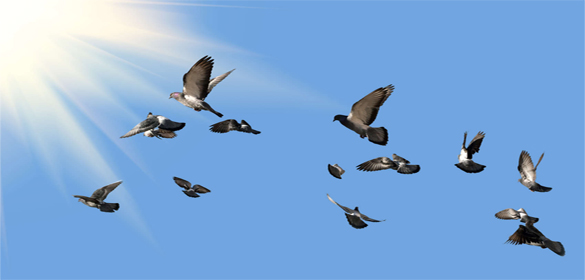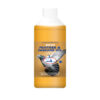
Calcium for Pigeons: Vital for Bone & Egg Health
Calcium for Pigeons: Vital for Bone & Egg Health
Calcium is one of the most critical minerals in a racing or breeding pigeon’s diet, yet it’s also one of the most commonly overlooked. Without adequate calcium, pigeons can suffer from poor eggshell formation, fragile bones, stunted growth in squabs, and even muscular issues that affect flight performance. Whether you’re a fancier focused on racing, breeding, or maintaining a healthy loft, ensuring your birds get enough calcium should be a top priority.
In this blog post, we’ll dive deep into why calcium matters for pigeons, how deficiency affects health and performance, and the best ways to supplement it through the diet, especially during high-demand periods like breeding, racing, and molting.
Why Pigeons Need Calcium
Calcium plays several essential roles in a pigeon’s body:
-
Strengthening bones and skeletal development
-
Forming strong, healthy eggshells
-
Facilitating muscle contractions (including the heart)
-
Supporting nerve function
-
Regulating enzymes and hormones
Just like in humans, calcium in pigeons is stored in the bones and mobilized during periods of high demand. If dietary calcium is insufficient, the body pulls calcium from the skeleton, leading to weakened bones and poor mobility.
Calcium Deficiency in Pigeons: What to Watch For
Calcium deficiency is more common than many pigeon fanciers realize. It tends to show up in several key ways:
1. Thin or Cracked Eggshells
Breeding hens need a surge in calcium to form strong eggshells. Without enough, eggs may be soft, thin, or malformed, increasing the risk of breakage or embryonic death.
2. Delayed or Stunted Growth in Squabs
Young pigeons rely on their parents’ crop milk and seed regurgitation, which must be nutritionally complete. A calcium-deficient hen or cock will pass on less-than-optimal nutrition, leading to soft bones and slow growth in chicks.
3. Wobbly Legs or Poor Perching
Juveniles with calcium deficiency may show difficulty standing or perching. Their bones are soft, and their legs may appear bent or unstable.
4. Flight Weakness
Calcium also affects muscle contraction and coordination. Adult racers that are calcium-deficient may tire quickly, have poor stamina, or show erratic flying behavior.
5. Increased Risk of Egg Binding
Hens lacking adequate calcium are prone to egg binding, a life-threatening condition where an egg becomes stuck in the reproductive tract.
High-Demand Times for Calcium in Pigeons
Calcium requirements fluctuate based on life stage and activity level. Here are times when calcium supplementation is especially critical:
-
Breeding Season – Hens use large amounts of calcium to form eggs
-
Molting Period – Feather regeneration increases nutrient demand
-
Growth Phase – Squabs developing bones and muscles need steady calcium
-
Racing Season – Muscle exertion and stress increase calcium turnover
-
During Illness or Recovery – Healing processes require calcium support
Natural Sources of Calcium for Pigeons
Pigeons in the wild obtain calcium from mineral-rich soils, grit, and natural food sources. In captivity, their access must be controlled and supplemented properly. Here are some commonly used sources of calcium for pigeons:
1. Oyster Shell Grit
One of the most traditional and effective sources. It breaks down slowly in the crop and is an excellent long-term calcium release mechanism.
2. Mineral Blocks
These blocks combine calcium with other trace minerals and salt, encouraging pigeons to self-regulate their intake.
3. Calcium Carbonate Powder
Often added to soft food or grain mixes, calcium carbonate is a concentrated form that’s easy to absorb. Be cautious with overdosing.
4. Vitamin D3-Calcium Combo Liquids
Liquid calcium supplements with added vitamin D3 ensure optimal absorption, especially during winter months when sun exposure is limited.
5. Crushed Eggshells
A natural and cost-effective option—but they must be sterilized to prevent salmonella risk.
Calcium and Vitamin D3: A Critical Combo
Calcium alone isn’t enough. Without vitamin D3, pigeons can’t absorb or utilize calcium efficiently. This is why many pigeon supplements are formulated to include both.
-
Vitamin D3 is synthesized in the skin through UVB exposure—which is minimal in loft-kept birds, especially in winter.
-
Lack of vitamin D3 leads to poor calcium metabolism, even if calcium is present in the feed.
Solution: Use a calcium+D3 combo supplement, especially for breeding pairs and growing squabs.
Recommended Calcium Supplementation Routine
For Breeding Pairs:
-
Begin calcium supplementation 2–3 weeks before egg-laying
-
Use liquid calcium with D3 3–4 times per week in drinking water
-
Provide oyster shell grit in a separate dish daily
For Growing Squabs:
-
Ensure parents are receiving enough calcium
-
Supplement soft foods with calcium carbonate or mineral mix
For Racing Birds:
-
Use calcium supplements 2x per week
-
Combine with magnesium and D3 to support muscle and bone recovery
For Molting Birds:
-
Use daily calcium-rich grit or powder
-
Pair with B-vitamins and amino acids to support feather regrowth
Top Tips to Maximize Calcium Absorption
-
Avoid Overloading with Phosphorus
Too much phosphorus (found in high-protein feeds) can reduce calcium uptake. -
Balance the Calcium:Phosphorus Ratio
Aim for a 2:1 calcium to phosphorus ratio in the overall diet. -
Keep Feed Clean and Dry
Moldy feed can interfere with nutrient absorption and cause health issues. -
Offer Sunlight Exposure When Possible
Just 15–30 minutes of natural sun can help with vitamin D3 synthesis. -
Avoid Over-Supplementation
Too much calcium can cause kidney stress and mineral imbalance—stick to recommended dosages.
Common Mistakes in Calcium Supplementation
-
Only using grit, and assuming it’s enough
While grit helps, it may not provide all the calcium required during demanding times. -
Skipping vitamin D3 in winter
Low UV exposure = poor calcium absorption. -
Inconsistent supplementation
Sporadic calcium use won’t build up adequate reserves stick to a routine. -
Ignoring signs of deficiency
Cracked eggs or weak flight shouldn’t be ignored—evaluate calcium intake right away.
Calcium Products Trusted by Fanciers
Several high-quality supplements are available that combine calcium and D3 for maximum results:
-
PHP Calci-D3 Liquid – Fast absorption; ideal before breeding and during growth.
-
Cest Pharma ORO-CALCIUM – Balanced for racing and breeding birds.
-
Calci-Mineral Grit Mixes – Provide trace minerals along with calcium.
Always read product labels and follow dosage guidelines.
Final Thoughts: Calcium is Non-Negotiable
Whether you’re racing champions or raising healthy young, calcium is a non-negotiable component of pigeon care. From egg formation to strong wingbeats, it underpins many physiological processes. Implement a seasonal calcium plan, ensure your birds have access to vitamin D3, and monitor their condition regularly.
By being proactive with calcium supplementation, you’ll not only prevent preventable health issues but also ensure that your pigeons thrive during every stage of life.
Need help choosing the right calcium supplement?
Let me know what stage your pigeons are in breeding, racing, or molting and I can recommend a customized supplementation plan.



